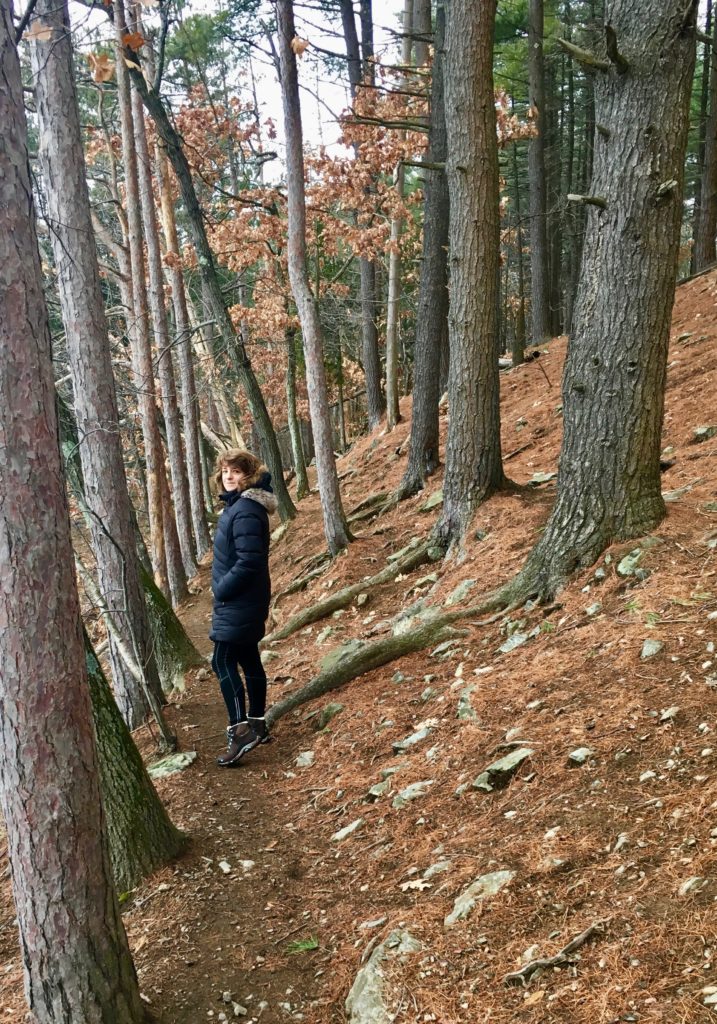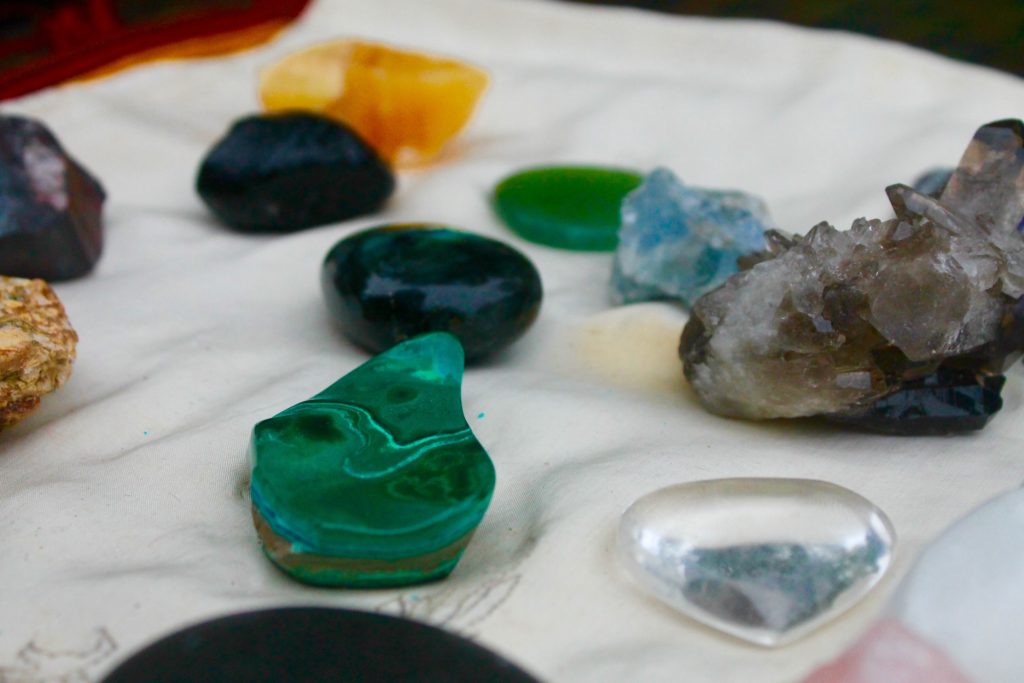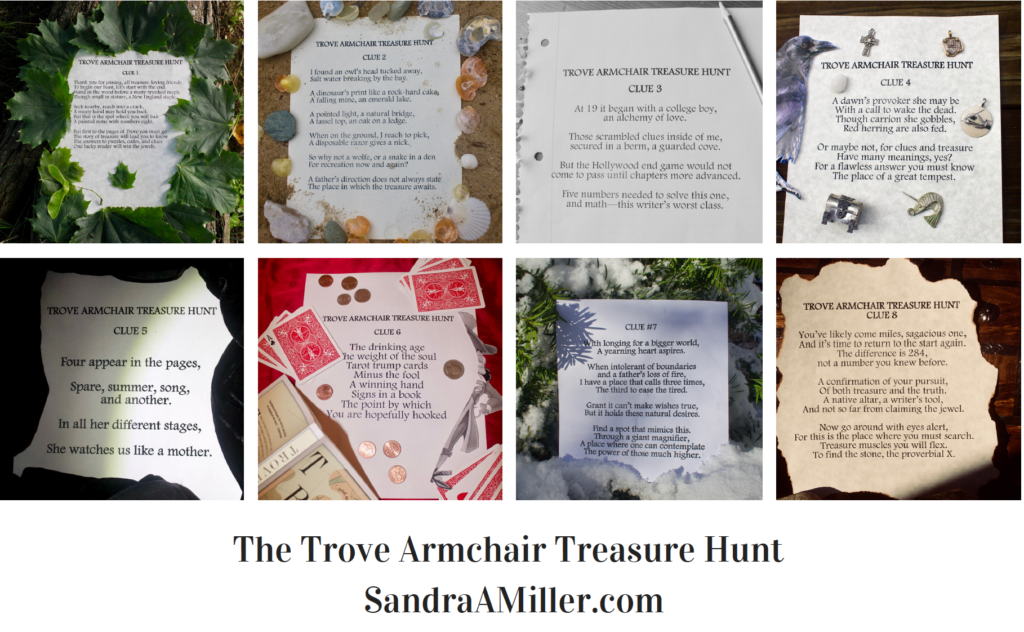
Several people have emailed and posted questions about the Trove Armchair Treasure Hunt, and since I’m not going to give any one person the advantage, I’ll share a few hints here.
When I was a junior in college, I thought that I should take a statistics course. Never mind that I absolutely sucked at math in high school (I’m generalizing here, but sucking at math is often a pre-req for becoming an English major). I figured that I had matured out of my math issues and was ready to master a class that required me to do numbers. Why did no one try to talk me out of this?
That same semester, I was an editor on the college newspaper which meant staying up late—often all night—on Thursdays to prepare The Acorn for its Friday printing. Then I’d have a lot of coffee and little sleep before my 9 a.m. statistics class, in which there was always a weekly quiz or a test that brought my ability to suck at math to a stratospheric level.
If you’ve read my memoir, Trove, you know that my father would succumb to cancer that December, and my beloved grandmother passed away a few months earlier in October. I found out when my mother asked my roommate, Liz, to relay the message to me; as in “Please tell Sandy her grandmother just died.” Those were some wretched months, but with some brightness, too, like the dearest of friends who held my pain, and also a sexy boyfriend in the Air Force Academy who once flew from Colorado to New Jersey for a weekend. That was good while it lasted, which wasn’t long. The friends, however, I still have.
What I don’t say in Trove is that the day after my father’s funeral I had to take the statistics final sitting on my bed in my pink bedroom in New Britain, CT. I passed. Barely. And I also think I looked at the textbook in what was not an open book test. But I don’t know for sure anymore. I was in a state of shock and grief. What I do know, is that I prayed for the spirit of my dad (who was good at math) to guide me. He came through in what would be a turning point in our relationship.
Here’s what else I can say that could be of use to you treasure hunters hoping to claim the bejeweled bracelet: I was not a logical girl, and I’m typically not the most logical woman. I respect the beauty of numbers, and as much as I want them to make sense, Fibonacci feels like a lover who has spurned me. I do think fractals are beautiful, but just…what? Polynomials? Whoa!
When I was on the We Lost Our Gold treasure hunt with David, I was befuddled by some of the puzzling solves he was making while I was wandering around Brooklyn following my gut instinct. But that instinct must not be underestimated when it comes to treasure hunting. I was right about some logic-defying things on that hunt. And many of my most rewarding experiences, in treasure hunting and in life, have come from following my gut (scientists now know the gut with its 500 million neurons is like our body’s second brain). So my advice to you is this: less logic, more gut.
So, I am not into complicated logic-laden clues, but I do believe in books, faeries, ghosts, and the healing power of crystals. I believe in reincarnation and soulmates and our ability to manifest stuff in unorthodox ways. I meditate and practice metaphysical magick in my basement room adorned with beautiful stones, potions, oils, and always smelling of sage and palo santo. I go to workshops in which we dance with abandon and talk to our spirit guides. And my friend Chuck who recently died from cancer has been sending me crystals (you don’t have to believe it, I do), and those signs that have led me to some wild discoveries. I once had ghostbusters (not Bill Murray types in hazmat suits, but loving folks who prayed and such) to exorcise another spirit that was giving my family trouble. It worked.

Something else, I am a wanderer. There isn’t a weekend day that I don’t want to go into the woods, listen to the trees and call them by their names that my father, an environmentalist who seldom met a plant he didn’t recognize, taught me. There is a maple tree that figures prominently in my book, and although I tend to see things symbolically—I was an English major, remember—sometimes a many-trunked maple is just a many-trunked maple.
For those of you who want to find the treasure, you will be well-served by taking my meandering approach to discovery. Poke around. Lo(w) and behold, who knows what you’ll find.
It took me decades to discover the things that mattered: my father, my mother, Mark, my book. And it may take a bit of wandering around, even crisscrossing and retracing your steps, to find that numbered stone. Not decades, or years, or months. Hours, perhaps. But that stone is out there, waiting to be discovered, rain or shine, snow or no.
I never wanted to create a hunt like The Secret or A Treasure’s Trove. I’m more Forrest Fenn and the Thrill of the Chase with my delight in the experience of going into the world and opening to discovery, seeing, smelling, hearing, looking everywhere for clues. I wanted to create a hunt for wanderers. Sure, you have to follow the clue poems to find the right place, but that’s certainly doable, even for people who suck at statistics.
Now go search, not just to find the stone (although I wish that for you, too), but to have the experience of searching. It’s a beautiful world that’s worth exploring. And as Mary Oliver said, “Leave room in your heart for the unimaginable.”
Like treasure, perhaps.
